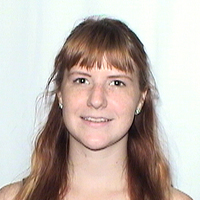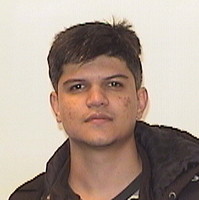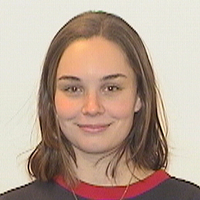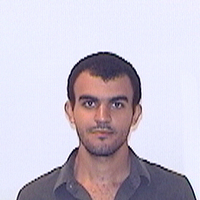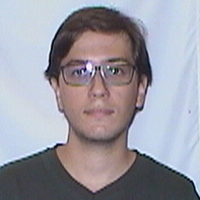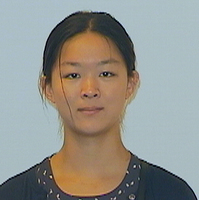CS 3500: Object-Oriented Design
This website is for a prior semester of CS3500. Please go to http://www.ccs.neu.edu/course/cs3500 for the current semester, and update your bookmarks accordingly.
Syllabus – Fall 2019
Meeting places & times
|
|
| TF |
| 9:50 — | |
|
|
| TF |
| 1:35 — | |
|
|
| TF |
| 1:35 — | |
|
|
| TF |
| 3:25 — |
Course staff
Instructors |
|
|
|
|
|
|
Staff |
|
|
|
|
|
|
|
|
|
|
|
| |
|
|
|
|
|
| |
|
|
|
|
|
| |
|
|
|
|
|
| |
|
|
|
|
|
| |
|
|
|
|
|
| |
|
|
|
|
|
| |
|
|
|
|
| ||
CCIS Tutors: |
|
|
|
Office Hours Schedule
Office hours are spread among several rooms; please check this calendar carefully to know where and when staff will hold their office hours.
The current campus map can be found here. The building name abbreviations are in (red parentheses); the sector of the map where you can find that building is in gray before the building name.
General information
CS 3500 teaches a rigorous approach to object-oriented programming and design, with an emphasis on abstraction, modularity, and code reuse as applied to the building and understanding of large-scale systems. We will explore the basic mechanisms and concepts of object-oriented programming: object, class, message, method, interface, encapsulation, polymorphism, and inheritance. Students will gain hands-on experience with tools and techniques that facilitate the creation and maintenance of applications using the Java programming language.
Prerequisites
This course assumes familiarity with programming in the style of How to Design Programs, and basic knowledge of the Java programming language as introduced in CS 2510.
Exams
We will have two examinations:
Exam 1: 10/25, in class
Exam 2: 11/22, in class
Materials
Software
For programming assignments, we will use Java 11. You should download and install the Java SE Development Kit, version 11 from Oracle.
The supported IDE (integrated development environment) for the course is IntelliJ IDEA. This is the IDE that the instructor uses in lecture, and we may occasionally give instructions for how to perform particular tasks in IDEA. You are free to use a different IDE, but we may not be able to help you if you run into trouble. IntelliJ IDEA Community Edition may be downloaded free of charge, and you can also license the Ultimate Edition.
If you are having trouble setting up IntelliJ, we have a video demonstrating how to configure your environment here.
Books
There is no required textbook, but you may find these books useful.
Joshua Bloch, Effective Java, Second Edition, Addison-Wesley, 2008. (Highly recommended. All Java programmers should read and understand this book.)
Erich Gamma, Richard Helm, Ralph Johnson, and John Vlissides, Design Patterns: Elements of Reusable Object-Oriented Software, Addison-Wesley, 1995. (The standard reference for object-oriented design patterns.)
Eric Freeman and Elisabeth Robson, with Kathy Sierra and Bert Bates, Head First Design Patterns: A Brain-Friendly Guide, O’Reilly, 2014. (An entertaining guide to object-oriented design patterns, with examples, illustrations, and exercises.) Full source code for the examples in Head First Design Patterns is available on GitHub.
Peter Sestoft, Java Precisely, Second Edition, MIT, 2005. (May be especially useful if your Java skills are weak.)
Online resources
Design Principle Master List: all the key design concepts taught in the course, in list form.
Piazza discussion board—
ask questions here! Google’s Java style guide—follow this! Your grade will reflect your adherence to good style.
IntelliJ configuration file to automate Google style – download this file and load it into IntelliJ to have your code formatted automatically.
Java API Reference Standard Edition, version 11
An interactive tutorial on using Git
Lectures
This table specifies the lecture schedule; topics are tentative.
Date |
| Topics (tentative and approximate) |
| Materials |
09/06 F |
| Why object-oriented design? |
| |
09/10 T |
| The essence of objects |
| |
09/13 F |
| Java review |
| |
09/17 T |
| Java safari |
| |
09/20 F |
| Finishing the safari; introducing the Model |
| |
09/24 T |
| Introducing the Model, and the Builder pattern |
| |
09/27 F |
| Controllers and Mocks; |
| |
10/01 T |
| Encapsulation and Invariants |
| |
10/04 F |
| Design critique: testing, toString, abstractions, I/O |
| |
10/08 T |
| Design exercise: Puralax |
| |
10/11 F |
| Inheritance vs. composition |
| |
10/15 T |
| Intro to Performance |
| |
10/18 F |
| Intro to Performance Part 2 |
| |
10/22 T |
| Exam prep; Introduction to Views, GUI basics |
| |
10/25 F |
| First exam |
| In class |
10/29 T |
| Exam review; GUI basics, continued |
| |
11/01 F |
| Model Review |
| |
11/05 T |
| The Adapter pattern |
| |
11/08 F |
| The strategy and decorator patterns |
| |
11/12 T |
| Class activity: Strategies applied |
| |
11/15 F |
| Design Principles; Case study: SceneGraph |
| |
11/19 T |
| Exam prep |
| |
11/22 F |
| Second exam |
| In class |
11/26 T |
| Introduction to JavaScript |
| |
11/29 F |
| No class: Thanksgiving |
| |
12/3 T |
| Wrapup |
|
Testing
Testing your code is sufficiently important that we’ve devoted an entire page to it. Please read these notes, for each and every assignment you work on.
Homework schedule
Homework will usually be due at 8:59 PM; the day of the week varies, so you should check each individual assignment to be sure. General homework policies are here.
This homework schedule is tentative and subject to change at the instructor’s discretion.
Link |
| Assigned |
| Due |
| Tue 09/10 |
| Tue 09/17 | |
| Wed 09/18 |
| Thu 09/26 | |
| Fri 09/27 |
| Mon 10/07 | |
| Wed 10/09 |
| Wed 10/16 | |
| Mon 10/21 |
| Thu 10/31 | |
| Fri 11/01 |
| Thu 11/14 | |
| Fri 11/15 |
| Tue 11/26 | |
| Mon 11/25 |
| Wed 12/04 | |
| Thu 12/05 |
| Wed 12/11 |
Course policies
Collaboration and academic integrity
You may not collaborate with anyone on any of the exams. You may not use any electronic tools, including phones, tablets, netbooks, laptops, desktop computers, etc. If in doubt, ask a member of the course staff.
Some homework assignments will be completed with an assigned partner, and some may involve a larger team (TBD). You must collaborate with your assigned partner or team, as specified, on homework assignments. You may request help from any staff member on homework. (When you are working with a partner, we strongly recommend that you request help with your partner.) You may use the Piazza bulletin board to ask questions regarding assignments, so long as your questions (and answers) do not reveal information regarding solutions. You may not get any help from anyone else on a homework assignment; all material submitted must be your own. If in doubt, ask a member of the course staff.
Providing illicit help to another student is also cheating, and will be punished the same as receiving illicit help. It is your responsibility to safeguard your own work.
A subtler form of cheating, but nevertheless illegal, is self-plagiarism. This is when you copy and submit code that you developed when you took CS 3500 previously for credit again. This is illegal if done for your group assignments, because the code you are attempting to submit has not been written just by you and your partner in the current semester.
Students who cheat will be reported to the university’s office on academic integrity and penalized by the course staff, at our discretion, up to and including failing the course.
If you are unclear on any of these policies, please ask a member of the course staff.
Homework
In general, you should submit your homework according to the instructions on the web page for the individual assignments.
Using the handin server
You will submit your homework using https://handins.ccs.neu.edu. We have written a how-to guide for using the handin server, if you are unfamiliar with it. (To log in to the handin server, you will need an active CCS account. If you are a CS major or have taken a CS class before, you should have one already. If you have forgotten your account name or password, go to https://my.ccs.neu.edu/ and click on the “Forgot Username” or “Forgot Password” links. If you have never created an account before, click on the “Apply for an account” link in the upper right corner.) Make sure you can log in to the handin server, and register for your section of the course, before the first homework is assigned.
Unlike prior semesters, you will usually need to submit multiple files for your assignments, rather than a single file. You should therefore add all your files to a .zip or .tar file, and submit that archive file. Note:
Java is very picky about directory organization. Your archive files should therefore contain your src/ and test/ directories only, and not have them nested within some other directory by mistake, or include your compilation directory unnecessarily.
The handin server is very picky about the sorts of archives you send it. Send it only .zip files, .tar files, or .tar.gz files – other archive formats will be rejected. So will archives larger than 5MB or 100 files and folders: if the server rejects your archive, check that you didn’t include unneeded files.
Additionally, every homework where you write code will be followed one day later by a self-evaluation assignment. Only one partner (for team assignments) needs to complete the self-eval, and it will count for both partners.
Submission troubles
If you have trouble submitting to the server and you have time before the deadline, please wait few minutes and try again; it may also be worth checking on Piazza to find out whether other students are experiencing similar difficulties. If upon retrying you still cannot submit, email Alex Grob (agrob@ccs) or your professor. Your email should have the subject “HW N submission problems” (where N is the appropriate homework number), and you should attach the ZIP file exactly as you would have submitted it to the server.
Late days & late work
Each student gets four free, no-questions-asked late days for the term. The purpose of late days is make the extension process fair and transparent by getting the instructors out of the extension-granting business entirely. Instead, when you need an extension, you can take one—provided you have a late day remaining.
To use a late day, just submit the homework as normal. The server will keep track of the number of used late days, and will prevent you from submitting more than one day late to any assignment, or late at all if you’ve used all your late days. Conserve your late days carefully.
No more than one late day may be used on any one homework. You may not look at and must avoid gaining knowledge of the self-evaluation questions until you have submitted your late assignment. Late days cannot be divided fractionally, but must be used whole. Late days cannot be transferred to or shared with a partner, so in order to take an extension both you and your partner must have sufficient late days remaining. Choose your partners carefully.
Using a late day to submit your files does not automatically grant you a late day for the self-eval: it will remain due at the normal time.
Grades
Your grade will be based on your performance on the problem sets (60%) and the exams (15%, 25%). Material for examinations will be cumulative.
The grades will computed on an absolute basis: there will be no overall curving. The instructor may choose to curve an individual homework or exam, but please do not bank on such a chance.
The mapping of raw point totals to letter grades is given below. Please note that these grade boundaries may move slightly at the discretion of the instructor, but the grade boundary for A is unlikely to change. Grades are not rounded: for instance, earning a 92.5% does not imply we will round up to a 93% and hence to an A.
Range |
| 93% |
| 90% |
| 86% |
| 83% |
| 80% |
| 76% |
| 73% |
| 70% |
| 66% |
| 63% |
| 60% |
| 0% |
Letter grade |
| A |
| A- |
| B+ |
| B |
| B- |
| C+ |
| C |
| C- |
| D+ |
| D |
| D- |
| F |



